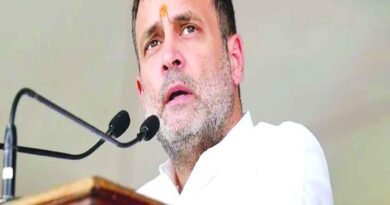The empty sky
Never before has an industry moved directly from a golden age to a dark age in a matter of weeks. Will global aviation weather this crisis? Will it survive in any recognisable form?
The flight-tracking service, Flightradar24, is a very useful application for frequent flyers. By allowing passengers to see traffic patterns and where the aircraft, which is going to operate the next flight, currently is, it gives a fairly good idea as to when it will take off. On other days, one could just see a plane pass overhead, fire up the application and find out where it is coming from or going to, maybe just to get the vicarious joy of virtually travelling. In a city like Dubai, where the gigantic Emirates airline rules with over 100 A380 double-deckers ferrying people across the world, it is just amazing to fire up the application on the phone and look at all the places those gigantic machines are going to.
Therefore, whether one is a frequent flyer or just an aviation geek, the last month has been a crazy one. Today, if you open the Flightradar24 application or the website and look over India, you will see barely a plane in the sky. Those that you encounter are those from South-east Asia, travelling to Europe over India, and the occasional cargo flights flying into major Indian airports. Besides, maybe one can see an evacuation flight or two every other day as Air India and other airlines, such as IndiGo, have been operating flights to get foreign nationals out of the country. Other than that, nothing.
All of India’s 650 plus commercial passenger planes are for the large part grounded. And India is not unique here. Even Emirates is operating just cargo flights and most of its A380s have been tucked away at Dubai’s huge World City airport. At least it will be able to bring these giants back into the service. Airlines like Air France, Lufthansa and Qantas are debating the very future of these aircraft. Across the world, even in the US, where there are over 10,000 commercial aircraft crisscrossing that vast nation, most planes are grounded.
The Coronavirus has hit global aviation like nothing before. According to the International Air Transport Association, airlines globally can lose passenger revenues of up to $113 billion due to this crisis. Not that the tensions between India and Pakistan last year, which had shut all air corridors between the two countries, can compare or the shootdown of the Malaysian Boeing 777 over Ukraine and Iran’s downing of a Ukrainian aircraft. Even the aftermath of the 9/11 terror attacks was not so brutal. Aviation consultancy, the Centre for Asia Pacific Aviation India Pvt Ltd (Capa India), has said that domestic air passenger traffic is expected to drop from an estimated 140 million in FY20 to around 80-90 million in FY21 and international traffic is expected to almost halve from around 70 million in FY20 to 35-40 million in FY21.
Why is it so bad this time around? Well clearly, hints of how aviation spreads a global pandemic were evident during the SARS outbreak of 2004 and the subsequent spread of Avian and Swine flu. During the spread of such infections, air travel in and around the East and South-east Asia had collapsed. But because the virulence of those viruses was far less than the one blowing like a tornado through the aviation world today, the overall impact was, at best, minimal in Europe and America.
This time around, the virulence of the disease, coupled with the insane growth of the aviation sector over the past decade, is going to make the industry suffer badly. Indeed, aviation is a victim of its own success as connectivity moved from huge hubs like Beijing and Shanghai to direct connectivity to cities like Wuhan.
Unfortunately, after Governments hummed and hawed for a couple of weeks before shutting aviation down, often delaying flight lockdowns at the insistence of airline lobbyists, the impact might carry on for longer. Even if India reopens its skies, it looks increasingly likely that the withdrawal of aviation services will only be gradually eased out.
As for international flights, several nations across the world are still under lockdown. This will go on for a longer period of time than in India. At least as of now, some nations, such as Singapore, are major aviation hubs. It is estimated that at least 200 of India’s commercial fleet will not be required when things restart. Leisure travel will be hit hard as jobs will disappear and increments will become a thing of the past, resulting in lower discretionary spends.
But the impact on international travel is likely to be harder still. Foreign holiday travel, particularly to hard-hit tourist hubs such as Italy and Spain, will vanish. Non-essential business travel, too, will. The conference market drying up will mean fewer trips to countries like Germany and even China. Airlines like Emirates, which have gorged themselves on Indian travellers for three decades now, might suddenly run out of the runway as aviation will likely reform itself in ways we cannot even predict today.
Make no mistake, international and domestic air travel will recover. One reason for this is because a vibrant and operational aviation sector is strategically vital for large nations like India. While the Indian Government will not be able to bail out airlines, the latter will have to indulge in small measures to get the sector up and running again, at least to a decent baseline.
This is also a time when the Government will have to sit down with industry leaders and figure out what it will have to do to help the sector grow. It needs to ponder if any protectionist moves, such as preventing large numbers of Indian travellers flying through hubs such as Dubai and Singapore, will be required.
At the same time, flying is all a confidence game. By now, everybody is calling the Coronavirus a “travelling salesman” disease. One reason for the dramatic growth in air travel over the past decade has been because of the incredible safety record of modern civil aviation but that confidence has disappeared thanks to the virus. So, how do we get that confidence back? That will have to be something the Government will have to do alongside airlines. It is not just us, Governments across the world will have to deal with it.
Kushan Mitra
(The writer is Managing Editor, The Pioneer)




